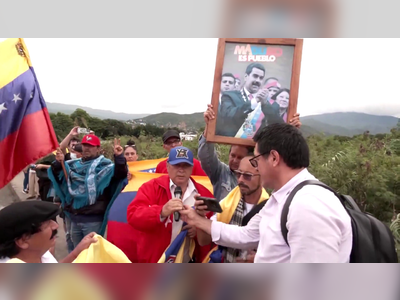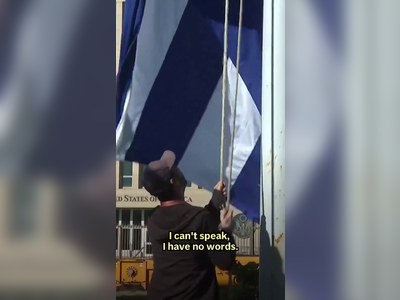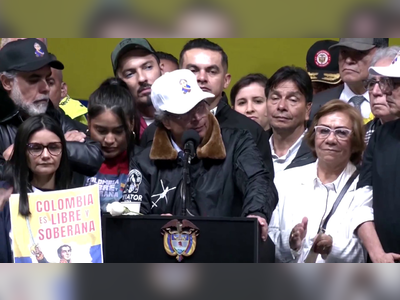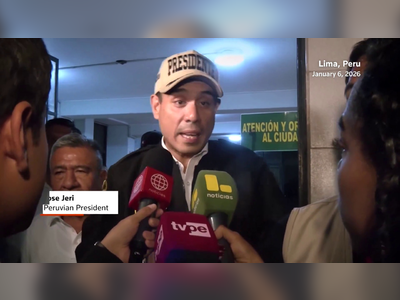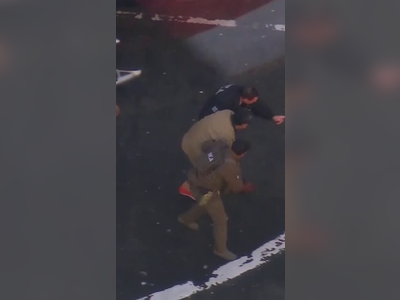Elusive Criminal ‘Diablo’ Continues to Evade Capture and Justice
The notorious Alejandro Arias, alias ‘Diablo’, faces potential legal expiration of murder charges as authorities struggle to apprehend him.
Alejandro Arias Monge, known by the alias ‘Diablo’, remains one of the most elusive and sought-after fugitives in Costa Rica.
Despite multiple arrest warrants for serious crimes including murder and violations of drug trafficking laws, Arias has managed to evade capture for over eight years, becoming a symbol of frustration for local and international law enforcement agencies.
The impending expiration of charges for two homicides, which could legally expire in August 2026, has added urgency to the case.
According to the Costa Rican Criminal Procedure Code, criminal charges prescribe after ten years, and Arias, who was declared a fugitive in 2016, could see his charges dismissed if not apprehended soon.
Ewald Acuña, a criminal lawyer, explained that the ten-year prescription period applies from when he was formally declared a fugitive.
Arias Monge was last seen two years ago during a substantial police operation in the Caribbean region, which was hindered by poor weather conditions that prevented aerial support from assisting ground forces.
Since then, local police and the Ministry of Security’s Drug Control forces have arrested members of his organization, including family members involved in alleged money laundering activities.
His criminal operations are suspected to include various financial activities, such as the purchase and sale of cattle and real estate, alongside illegal lottery sales and commercial enterprises.
Randall Zúñiga, the director of Costa Rica’s Judicial Investigation Department, described the fugitive as supported by networks in remote and difficult-to-access northern regions.
Arias uses financial incentives to gain local support, complicating police efforts.
Intelligence from these areas suggests Arias operates comfortably along border transit routes, often slipping easily between Costa Rica and foreign territories.
A network of influence and possible infiltration into police ranks further hampers efforts to bring him to justice.
Eduardo Trejos Lalli, former director of the Directorate of Intelligence and Security (DIS), highlighted the significant resources and support Arias reportedly leverages, utilizing funds from illicit drug trafficking for logistical support and protection.
Multiple high-profile captures of Arias’s criminal associates have occurred, including significant operations last December yielding the arrest of 21 individuals.
Still, Arias himself remains at large.
The challenge of capturing ‘Diablo’ underscores broader regional difficulties with drug trafficking and organized crime.
The government is under pressure to reinforce and expand operations to regain control and disrupt operations led by criminal figures like Arias.
Ongoing issues including the suspected infiltration of law enforcement ranks by Arias’s organization amplify the difficulties faced by authorities.
Trejos expressed the need for strategic enhancements in operations, citing climate, geography, and internal trust issues as factors complicating Arias’s capture.
The Pacific and border regions continue to serve as conduits for narcotics into and out of the country, stressing the need for robust intelligence and policing mechanisms to prevent further entrenchment of organized crime.
This unresolved case exemplifies the significant impact of organized crime in Costa Rica and highlights the continuing efforts required to mitigate its effects on security and legal systems.
The outcome of the pursuit of Arias Monge could have significant implications for future law enforcement and judicial proceedings in the country.
Despite multiple arrest warrants for serious crimes including murder and violations of drug trafficking laws, Arias has managed to evade capture for over eight years, becoming a symbol of frustration for local and international law enforcement agencies.
The impending expiration of charges for two homicides, which could legally expire in August 2026, has added urgency to the case.
According to the Costa Rican Criminal Procedure Code, criminal charges prescribe after ten years, and Arias, who was declared a fugitive in 2016, could see his charges dismissed if not apprehended soon.
Ewald Acuña, a criminal lawyer, explained that the ten-year prescription period applies from when he was formally declared a fugitive.
Arias Monge was last seen two years ago during a substantial police operation in the Caribbean region, which was hindered by poor weather conditions that prevented aerial support from assisting ground forces.
Since then, local police and the Ministry of Security’s Drug Control forces have arrested members of his organization, including family members involved in alleged money laundering activities.
His criminal operations are suspected to include various financial activities, such as the purchase and sale of cattle and real estate, alongside illegal lottery sales and commercial enterprises.
Randall Zúñiga, the director of Costa Rica’s Judicial Investigation Department, described the fugitive as supported by networks in remote and difficult-to-access northern regions.
Arias uses financial incentives to gain local support, complicating police efforts.
Intelligence from these areas suggests Arias operates comfortably along border transit routes, often slipping easily between Costa Rica and foreign territories.
A network of influence and possible infiltration into police ranks further hampers efforts to bring him to justice.
Eduardo Trejos Lalli, former director of the Directorate of Intelligence and Security (DIS), highlighted the significant resources and support Arias reportedly leverages, utilizing funds from illicit drug trafficking for logistical support and protection.
Multiple high-profile captures of Arias’s criminal associates have occurred, including significant operations last December yielding the arrest of 21 individuals.
Still, Arias himself remains at large.
The challenge of capturing ‘Diablo’ underscores broader regional difficulties with drug trafficking and organized crime.
The government is under pressure to reinforce and expand operations to regain control and disrupt operations led by criminal figures like Arias.
Ongoing issues including the suspected infiltration of law enforcement ranks by Arias’s organization amplify the difficulties faced by authorities.
Trejos expressed the need for strategic enhancements in operations, citing climate, geography, and internal trust issues as factors complicating Arias’s capture.
The Pacific and border regions continue to serve as conduits for narcotics into and out of the country, stressing the need for robust intelligence and policing mechanisms to prevent further entrenchment of organized crime.
This unresolved case exemplifies the significant impact of organized crime in Costa Rica and highlights the continuing efforts required to mitigate its effects on security and legal systems.
The outcome of the pursuit of Arias Monge could have significant implications for future law enforcement and judicial proceedings in the country.




